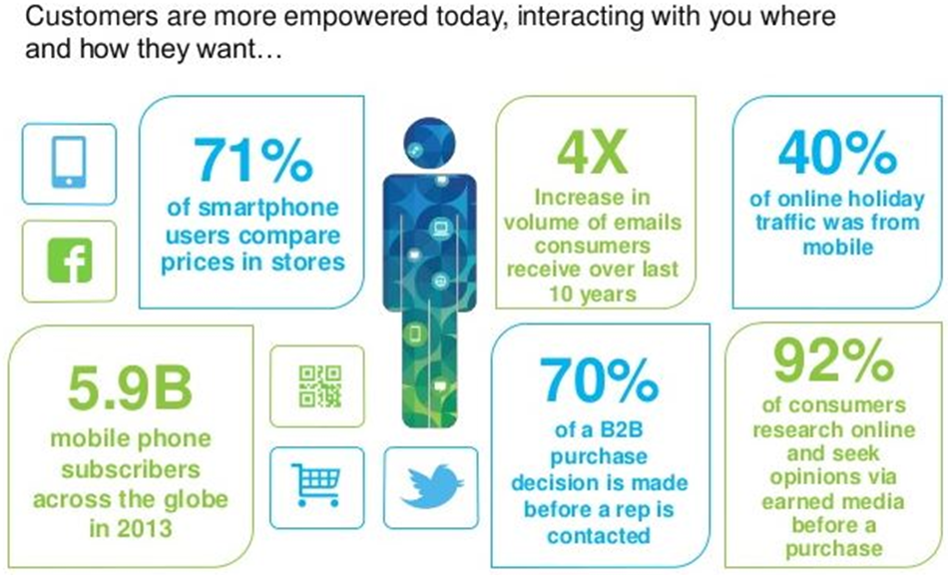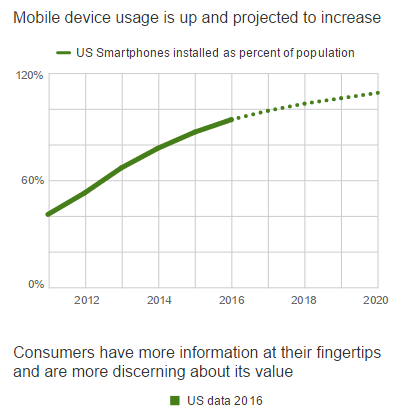Five Reasons UX Should Be Central to Your Communications Strategy
December 02, 2016
User experience has long been touted as the next big battleground. With businesses competing on everything from R&D to accounting systems, UX is the most tangible differentiator for people, and therefore one of the most powerful. But how many companies are applying UX theory to their communications strategy?
User satisfaction is intrinsically linked to communication. If communication is not relevant, accessible or accurate, the user will switch off and remember when comparing other providers. It is therefore imperative that 2017, with more user touchpoints than ever before, is the year UX becomes central to communications strategy. Here are five reasons why:
Good communications breed loyalty.
How often do you trust someone you can’t communicate with? The same logic applies to the business-customer and employer-employee relationship. Good communication leads to increased loyalty, trust, and acceptance. Bad communication leads to disengagement, apathy, and ultimate rejection.
With 89 percent of market leaders currently competing on the basis of customer experience, loyalty is something with which companies can ill afford to gamble. This is reinforced by data showing that loyal customers are five times more likely to repurchase, five times more likely to forgive, and seven times more likely to try a new offering than disloyal customers (Temkin Group).
Companies on the edge of this movement are looking at innovative, direct, and simple solutions. Internal options include having an online forum where employees can discuss issues, learn about events, and share documents. Organizations that embrace these new opportunities are likely to see increased loyalty from employees and customers alike.
Digital Interactions (News - Alert) are overtaking physical Interactions
According to Gartner, the average person will have more daily interactions with bots than their spouse by 2020. This highlights how digital communication is already becoming key to communication strategy and therefore, as we have seen, user experience.
It is likely that larger companies will not have the human capacity to communicate on an individual basis with people, underlining the importance of factoring automated communication into future strategies. But automated communication can often go wrong or frustrate the user, leading to disengagement.
Companies need to be analyzing how their communications will change over the coming years, and where automated communication will be most effective across their user touchpoints.
 Image via Perficient
Image via Perficient
Mobile is still key…
According to some estimates, there will be another 50 million smartphone users by 2020 in the U.S. alone, an increase of 25 percent. Not only does this prove that an effective mobile communication strategy is crucial to user satisfaction, but also the importance of omni-channel communication.
Integrated and standardized communication across all channels will be of the utmost importance to user satisfaction next year and beyond, and companies must be prepared for an influx of mobile communications in the coming years if they want to remain ahead.
 Image via Forrester
Image via Forrester
…But apps might not be
While mobile will remain to be a key channel for the foreseeable future, the future of app-based communication is less certain. Another Gartner (News - Alert) estimation is that 20 percent of brands will have abandoned their apps by 2019 due to a perceived lack of market advantage, leading to huge losses of time and budget.
Once again, it all comes down to the interplay between user experience and communication. From a retail perspective, if brands are not actively engaging and communicating with their customers through apps – whether through inquiries, support or discovering a company’s offering – people will cease to view it as an asset.
To safeguard the investment that companies have poured into apps – whether enterprise or consumer – they need to ensure that applications enable rather than hinder communication.
Employees are more demanding
Companies should turn a critical eye to their internal communications UX. With companies becoming more digitized as they grow, internal omni-channel communication is more important than ever. On average, people use between four and six communication apps at work daily, often leading to a convoluted and inefficient communication processes.
Although the world of communication is becoming ever more automated, people are still critical to the success of any business. Consequently, companies need to analyze their internal communication platforms to ensure they are giving their employees a positive user experience; platforms need to be capable of handling large amounts of data, high-speed collaboration and retaining crucial information.
Users across the technology spectrum are becoming more discerning year over year, more willing to discard a service based on a poor user experience. A positive user experience is one of the crucial elements of communications, but as the way we communicate is constantly changing, the parameters of UX are also in constant flux. Bringing user experience in line with communications strategy is, as a result, an absolute must for any company.
 About the Author
About the Author
Michael Affronti is VP of Product at Fuze, overseesing Product Management and Design teams. He is also an instructor at General Assembly where he teaches a Product Management and Entrepreneurship course.
Edited by Alicia Young
Article comments powered by
 Internet Telephony Magazine
Click here to read latest issue
Internet Telephony Magazine
Click here to read latest issue CUSTOMER
CUSTOMER  Cloud Computing Magazine
Click here to read latest issue
Cloud Computing Magazine
Click here to read latest issue IoT EVOLUTION MAGAZINE
IoT EVOLUTION MAGAZINE




